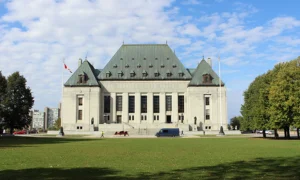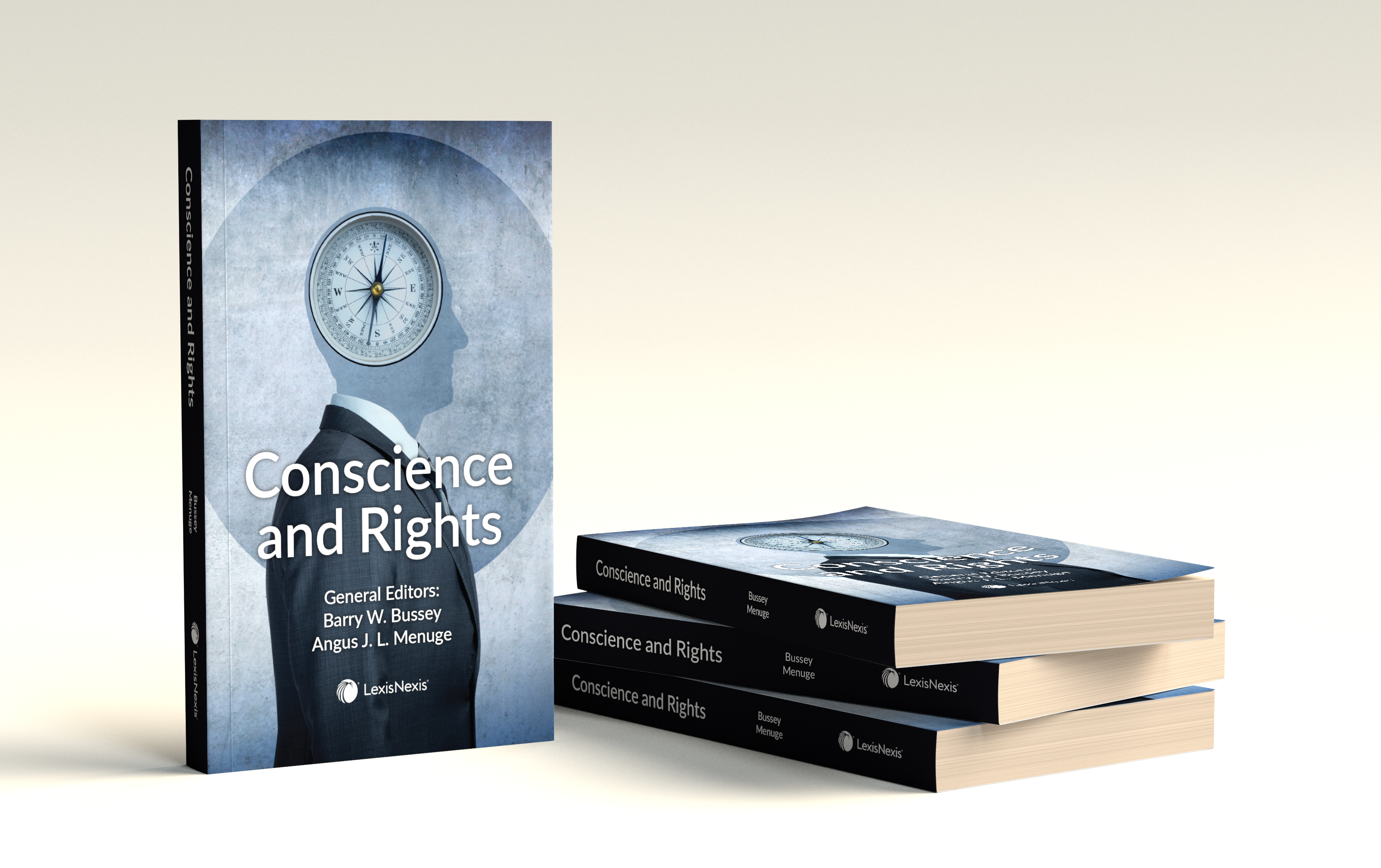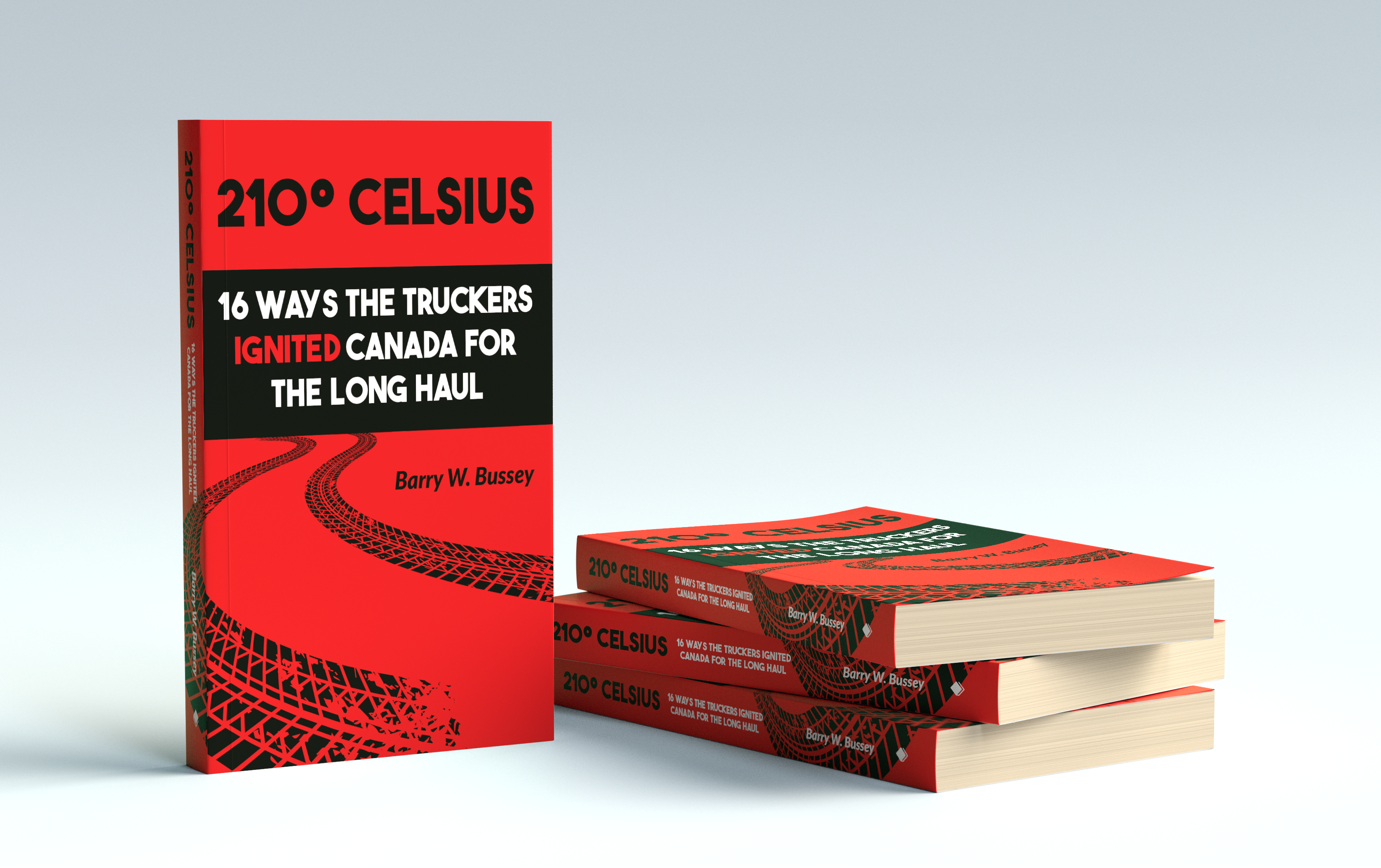concept in a free and democratic society.
The post The Independence of Judicial Conscience appeared first on Bussey Ainsworth.
]]>The post The Independence of Judicial Conscience appeared first on Bussey Ainsworth.
]]>The post Conscience and Rights appeared first on Bussey Ainsworth.
]]>The post Conscience and Rights appeared first on Bussey Ainsworth.
]]>The post Politicization of Supreme Court of Canada Started Long Before ‘Woman’ Dustup appeared first on Bussey Ainsworth.
]]>
“What the Supreme Court demonstrates again and again is a set of scales tipped towards one side of this issue,” she writes. “If you believe that men are male and women are female, you can’t realistically expect the top court to hear you out as it would a gender-spectrum believer. That’s a problem, especially now that philosophical debates increasingly play out in the courts.”
A court taking on the “spirit of the times” is, some would say, natural. Why the fuss?
The problem is that the SCC has become part of the political power game in Ottawa and has ceased to function properly as a court.
As my friend, law professor Iain T. Benson says, “How can citizens expect to be treated in a judicial manner when the court has taken sides in political matters about which reasonable people disagree?”
The SCC does not appoint its own judges and yet it virtue signalled as if it did. For what purpose? It is supposed to be a court of law.
Let that sink in for a minute.
Never have our Supreme Court chief justices ever gotten in front of a political issue the way Wagner did regarding the convoy protest. To put into perspective the politicization of the SCC today, we only need to see how such an act was regarded in the past by the senior members of the court bench.
The judges of Canada were in an uproar that Berger would get involved in politics. That also was the high-water mark of the concept that judges had no business getting into the political weeds because they just might have to pass judgment on the political events that end up in court. As they often do.
“A judge has no freedom of speech to address political issues which have nothing to do with his judicial duties,” he said.
“His abstention from political involvement is one of the guarantees of his impartiality, his integrity, his independence. Does it matter that his political intervention supports what many, including the press, think is a desirable stance? … Surely there must be one standard, and that is absolute abstention.”
Times have changed, indeed.
Law is always going to be involved in issues with a political dimension, but that is different than the court itself being political.
In 1924, Lord Chief Justice of England, Gordon Hewart, articulated the famous legal maxim: “[It] is of fundamental importance that justice should not only be done, but should manifestly and undoubtedly be seen to be done.”
The SCC needs to return to the approach so clearly understood by former Chief Justice Bora Laskin and decouple itself from the stance taken by the current chief justice.
Imagine how the Supreme Court of Canada is going to handle the government’s appeal of Justice Mosley’s decision, having so prejudged the issue outside of the courtroom? My guess is that if the Federal Court of Appeal overturns the Mosley decision, the Supreme Court will not even hear an appeal. They dare not for fear of being called every pejorative in the post-modern lexicon.
If the SCC does accept the appeal of Mosley’s decision, how could Chief Justice Wagner possibly sit on the panel? His very public pre-judgment of the issue means that he must recuse himself. That is not a good look for Canada’s highest court.
The post Politicization of Supreme Court of Canada Started Long Before ‘Woman’ Dustup appeared first on Bussey Ainsworth.
]]>The post It’s Official – Trudeau Acted Illegally Using The Emergencies Act Against The Truckers – see my Three Minute Interview with Stephen LeDrew appeared first on Bussey Ainsworth.
]]>The post It’s Official – Trudeau Acted Illegally Using The Emergencies Act Against The Truckers – see my Three Minute Interview with Stephen LeDrew appeared first on Bussey Ainsworth.
]]>The post 210° Celsius – RATED 2 out of 5 appeared first on Bussey Ainsworth.
]]>The post 210° Celsius – RATED 2 out of 5 appeared first on Bussey Ainsworth.
]]>The post Barry Winston Bussey, Publications, 2000 – 2023 appeared first on Bussey Ainsworth.
]]>The post Barry Winston Bussey, Publications, 2000 – 2023 appeared first on Bussey Ainsworth.
]]>The post Supreme Court Law Review, 2nd Series, Volume 113 appeared first on Bussey Ainsworth.
]]>The post Supreme Court Law Review, 2nd Series, Volume 113 appeared first on Bussey Ainsworth.
]]>The post 210° Celsius 16 Ways the Truckers Ignited Canada for the Long Haul appeared first on Bussey Ainsworth.
]]>The post 210° Celsius 16 Ways the Truckers Ignited Canada for the Long Haul appeared first on Bussey Ainsworth.
]]>The post Webinar by CCCC’s – Stewardship of your Ministry’s Investments appeared first on Bussey Ainsworth.
]]>Our Faith-Based Charity clients may be interested in a webinar put on by the Canadian Centre for Christian Charities. Here is the information:
Date & Time: June 21, 2023, 02:00pm Toronto Time
Description:
Would you like to learn how to make the most of your ministry’s capital investments while responsibly stewarding your resources? If so, join us at CCCC’s webinar “Stewardship of Your Ministry’s Investments”. During this webinar, we’ll explain how investments can align with our Christian values and why this may be important to potential major donors. Additionally, we’ll showcase examples of how these investments can generate steady returns for ministries over time.
This webinar will be led by our guest presenter Tim Jenkins from Trinity Family Wealth Advisors. You will be equipped with practical guidance on how to incorporate Biblically informed investing into your pension funds and investment portfolio. You’ll learn about the importance of aligning your investments with your values and goals, and the role of stewardship in achieving financial success.
This webinar is designed for Chief Financial Officers, members of your Investment Committee, staff who oversee your pension fund, and any staff/volunteers involved in your investment decisions. You’ll come away with a better understanding of how to make the most of your ministry’s investments, both in terms of financial returns and impact.
During the webinar, we’ll cover a range of topics, including:
– How ministries are avoiding losses in their investments and still making solid returns year after year.
– The basics of Biblically informed investing.
– How to align your investments with your ministry’s values and goals.
– The importance of stewardship in achieving financial success.
– Best practices for managing your pension funds and investment portfolio.
– Knowing if your ministry is operating within the Securities Commission Regulations.
By the end of this webinar, you’ll gain an understanding of how to turn stewardship into impact and make the most of your ministry’s investments. Don’t miss out on this valuable opportunity to learn from an expert and take your ministry’s finances to the next level.
The post Webinar by CCCC’s – Stewardship of your Ministry’s Investments appeared first on Bussey Ainsworth.
]]>

